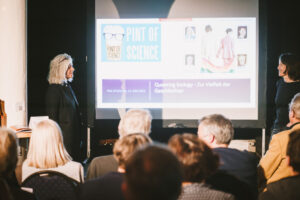
Recht und Versorgungslücken: Auswirkungen des BSG-Urteils vom 19. Oktober 2023 auf die medizinische Versorgung von trans* und nicht-binären Personen
Die Diagnose Geschlechtsinkongruenz beschreibt die Nicht-Übereinstimmung zwischen dem bei der Geburt zugewiesenen Geschlecht und dem eigenen, erlebten Geschlecht. Menschen mit dieser Diagnose haben grundsätzlich Anspruch auf geschlechtsangleichende Maßnahmen, da diese medizinisch notwendig sind, um den oft massiven Leidensdruck zu lindern. Seit Ende 2023 gibt es jedoch neue Herausforderungen: Viele Krankenkassen übernehmen die Kosten für geschlechtsangleichende Behandlungen nicht mehr wie zuvor.



